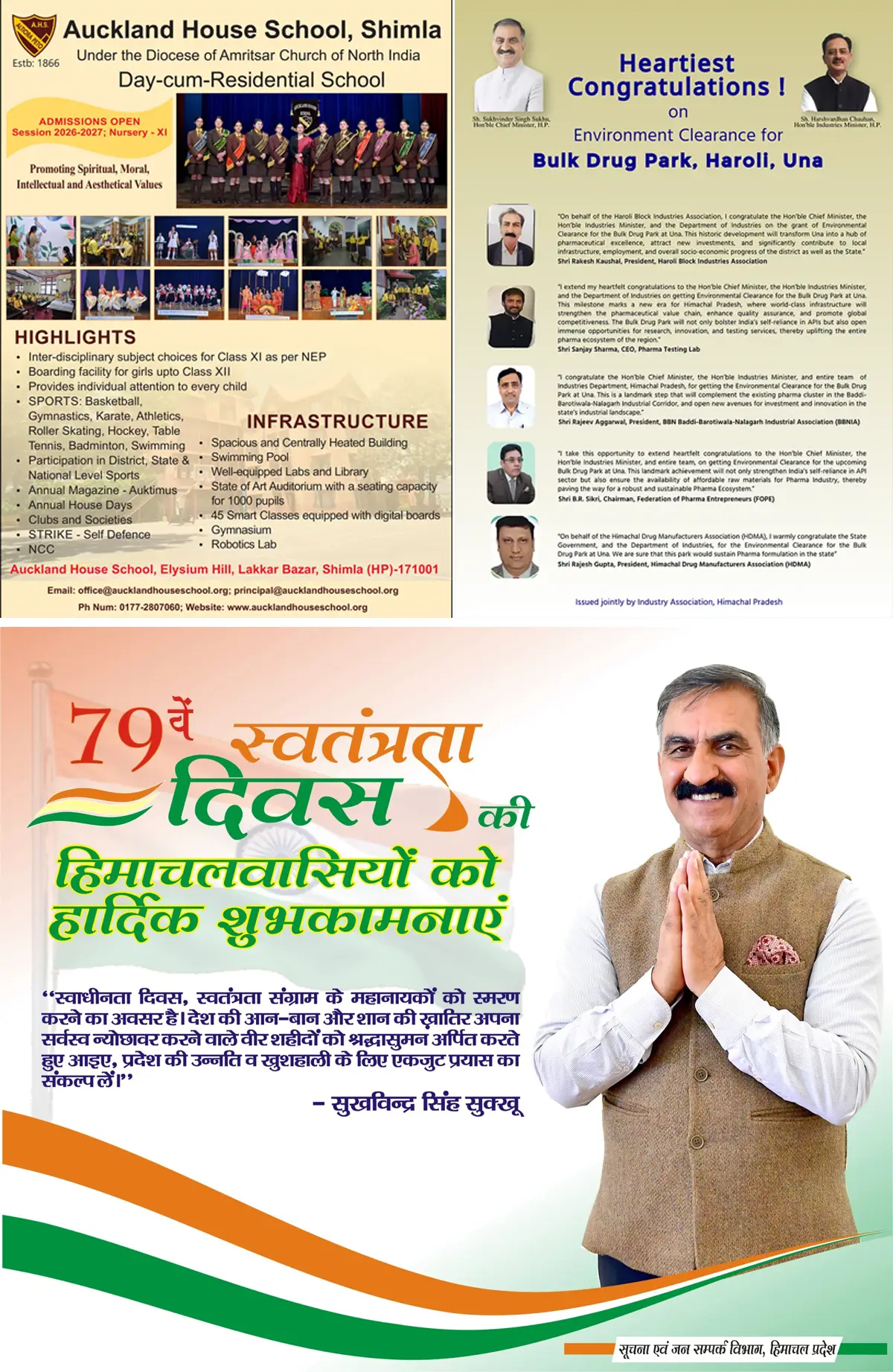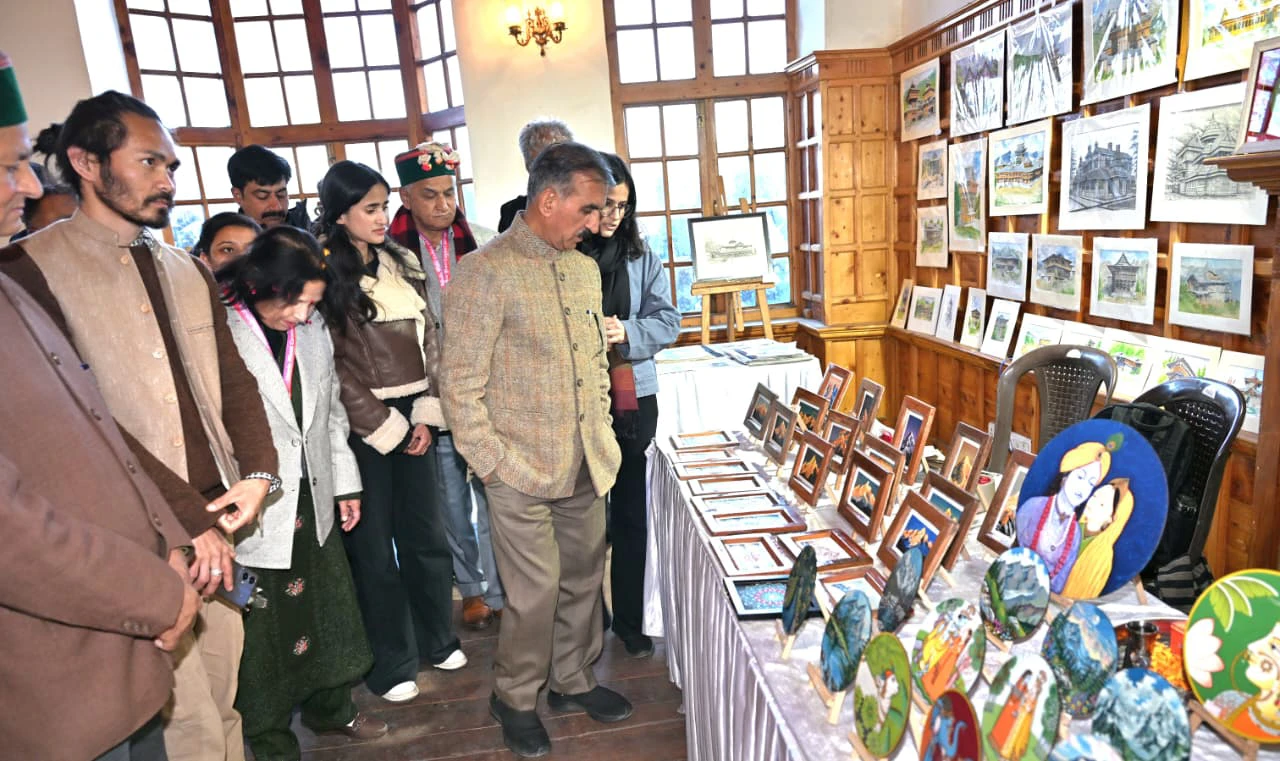“The Doll”: Exploration of Human Relationships Through Futuristic Lens
3 min read
Shimla, July 20, Ritanjali Hastir
Miro Gavran’s “The Doll”: A Croatian Romantic Comedy in Hindustani was presented by Sankalp Rangmandal Shimla in collaboration with the Department of Language, Art & Culture HP today at the Gaiety Theater.
“The Doll” presents a captivating premise that combines futuristic technology with the timeless themes of love and self-discovery. The story of a 39-year-old man who resorts to living with an android after his girlfriend leaves him is innovative and reflective of contemporary relationship dynamics. The play attempts to critique male-female misunderstandings by embedding the android, Maya, with the viewpoints of her female creator. While this concept is promising, the execution often falls into predictability, diluting the impact of the narrative.
Man’s character arc was inadequately developed, intended to show his growth from emotional detachment to self-awareness. His transformation appears abrupt and lacks the emotional depth needed to make his journey believable. Maya, the android, starts as a fascinating character, designed to fulfill male desires while subtly challenging Admi’s perceptions. However, her progression from a mere object of desire to a sentient being with her understanding of happiness is insufficiently explored, leaving her character feeling incomplete.
The performances by the actors are commendable, with both portraying their roles convincingly. However, the chemistry between Maya and Admi could have been more dynamic, especially given the play’s focus on their evolving relationship. The direction, while competent, misses opportunities to enhance the narrative’s emotional and comedic elements. The initial dialogues were faint and hard to hear, although this improved as the play progressed. The inclusion of more comical interactions could have added a layer of relatability and engagement for the audience.
The set design is one of the play’s highlights, particularly the square carpet resembling a chessboard, which serves as a central stage for the characters’ interactions. This visual metaphor effectively underscores the calculated and strategic nature of relationships, as both Admi and Maya navigate their roles in this emotional “game.” However, this shift appears more selfish than genuine self-realization. Moments before, Admin was ready to spend his life with Maya, but when she mentioned that her evaluation of their relationship would be considered before allowing him to keep her, he took a sudden guilt trip. This suggests that his return to Neha is driven by a fear of rejection rather than an authentic change of heart.
“The Doll” aims to shed light on the inadequacies of male understanding of female perspectives and the importance of emotional connections over physical satisfaction. While the play succeeds in initiating this conversation, it often falls short of delivering a profound message. The humor and playful situations between Admin and Maya offer some insight, but the play lacks a consistent tone, oscillating between serious introspection and light-hearted banter without fully committing to either.
Overall, “The Doll” is a thought-provoking production with a unique concept that addresses important themes in modern relationships. Despite its intriguing premise and strong performances, the play struggles with uneven character development and missed opportunities in direction and dialogue. It is a commendable effort that prompts reflection on the nature of human connections, though it could benefit from a more cohesive and emotionally resonant execution.






